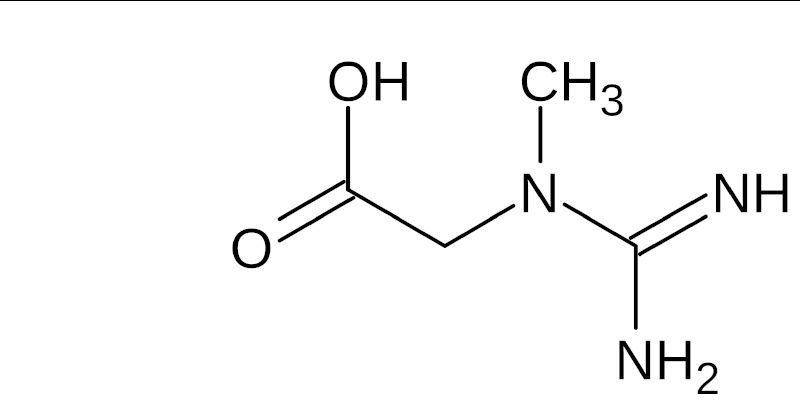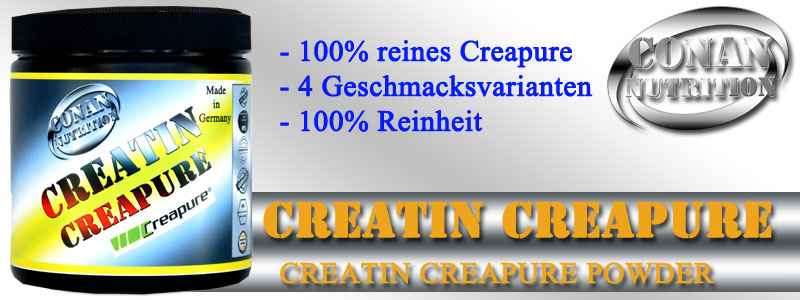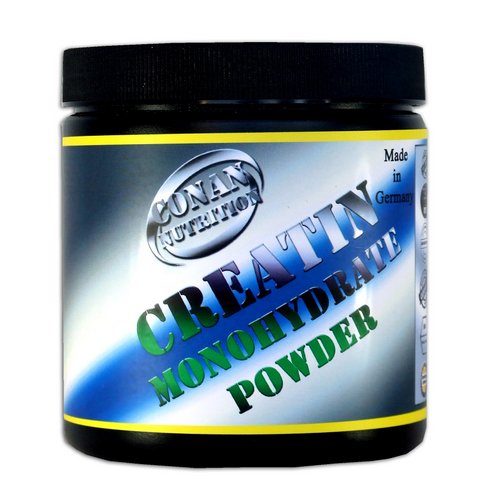CREATIN MYTH ON TEST
Some side effects are wrongly attributed to creatine. When you're at the top, someone is always trying to bring you down. Of course, this also applies to Creatin.

Creatine has been one of the most popular supplements in bodybuilding since its inception in 1993, and for good reason. Countless studies prove its effectiveness. There is agreement that it works for 80 percent of users. The other 20 percent usually eat red meat regularly. Red meat is high in creatine, and those who eat it regularly also have more creatine in their muscles. Therefore, the reaction to the supplement is not as drastic as with vegetarians or people who do not like meat.
With the success of creatine on the market, there was a lot of criticism, both justified and unfounded.
With the success in the market, however, came a lot of unfounded criticism. This is fueled by poorly researched reports in popular media. Creatine has even been called a steroid. In fact, it is an amino acid by-product that is synthesized in the liver, kidneys and pancreas from the three amino acid precursors methionine, glycine and arginine. The body makes about one gram of creatine a day, and when you eat meat, another one or two grams. Anyone who calls creatine a drug has done miserable research.
But it is not only in the mass media that you will find false information about creatine. Scientific journals regularly prophesy a bleak future for creatine users. However, a closer look shows that this is irrelevant for healthy people. It's like the reports that a lot of protein is harmful to people with kidney problems.
There is absolutely no evidence that creatine and a lot of protein are harmful to people with normal kidney function.
CREATIN DAMAGE THE KIDNEYS - WRONG !!!
Side effects attributed to creatine include kidney overload, muscle cramps, and dehydration. However, two new studies definitely prove these claims are false.

CREATIN CAUSES MUSCLE CRAMP - WRONG !!!
It is believed that the use of creatine promotes the shift of water from the extracellular to the intracellular compartments. Critics claim that it makes it difficult to cool the body and changes the electrolyte balance, which leads to muscle cramps.
However, studies show that creatide-related muscle cramps and overheating mainly occur in heat, when athletes don't drink enough water and lose too much fluid. Other studies even show the opposite: Creatine appears to offer significant protection against heat sickness, dehydration, and muscle cramps. That seems logical because creatine increases the water in the body which protects against dehydration and lowers core temperature in the body.
CREATIN OVERLOADS THE KIDNEYS - WRONG !!!
Dann wird befürchtet, dass Creatin die Nierenfunktion beeinträchtigt. Das wichtigste Abfallprodukt des Creatin-Stoffwechsels, Creatinin, wird über die Nieren ausgeschieden. Bei einer eingeschränkten Nieren-Funktion kann das zu Überlastung führen, ist ein wichtiger Test für die Nieren-Funktion der Creatinin-Clearance Test: Zu viel Creatinin verweist hier auf Probleme im Intermechanismus der Nieren. Aber dass eine bestimmte Substanz als Marker für eine schlechte Nierenfunktion benutzt wird, schlisst ja nicht, dass sie das Problem ausgelöst hat.

A 1998 Lancet case study is cited in a study of the literature on the acts of creatine in relation to muscle spasms and dehydration.
A 25 year old man who 120 grams of creatine per day nahm, litt unter einer Verschlechterung der Nierenfunktion. Als er das Creatin absetzte, blieben die Symptome aus, was die Wissenschaftler vermuten ließ, dass Creatin toxisch für die Nierenfunktion ist. Eine französische Zeitung meldete das drei Tage nach dem beenden der Studie, übersah aber völlig, das der Mann bereits Nierenkrank war.
already read..?
CREATIN ….. ES FUNKTIONIERT !!! > >
Anyway, 20 grams of creatine per day of the typical loading phase of five days is simply crazy because the majority of the creatine is excreted.
Nach diesen zweifelhaften Studien am Menschen über creatinbedingte Nierenüberlastung gab es auch eine Reihe von Tierstudien, die diese Kritik unterstützen. Aber auch das ist nicht relevant, denn Creatin gehört nicht zum normalen Ernährungsregime vieler Tiere und wird oft nicht einmal absorbiert. So sorgt Creatin für eine chronische Hepatitis bei Mäusen, aber nicht bei Ratten. Menschen dagegen absorbieren es leicht und schnell, obwohl dass in der Werbung oft angezweifelt wird, um „überlegene“ Creatin-Supplemente anzubieten.
Complicating matters is that the creatine in the kidney function test in creatine users is not accurate, especially in the charging phase.
New studies on creatine side effects.
A new study compared men between 18 and 35 who received either ten grams of creatine or a placebo for three months and also did cardio three times a week. The researchers used a new test for kidney function. The serum protein cystatin C is measured here. Cystatin C is regularly filtered and easily reabsorbed in the kidneys because it has a low molecular weight. A loss of cystatin C is a good indicator of a defect in the glomerular filtration system of the kidneys and is not influenced by the creatine metabolism.
By monitoring the excretion of cystatin C, it was found that ten grams of creatine daily for three months had no negative effects on kidney function.
Tests showed that exercise alone improved kidney function. This is attributed to its health-promoting effects: more efficient glucose control, lower blood pressure and lower oxidative stress and body fat levels. But these are also the factors that provide lifelong protection for the kidneys.
So exercise regularly if you want to keep your kidneys healthy!
- IFBB EUROPA PRO 2020 - RESULTS
- NEW YORK PRO 2020 RESULTS
- CHICAGO PRO 2020 RESULTS
- Keep POWERHOUSE BERLIN Oldschool gym from closing
- PHIL HEATH WANTS TO PARTICIPATE IN MR: OLYMPIA 2020


A comment
Comments are closed.